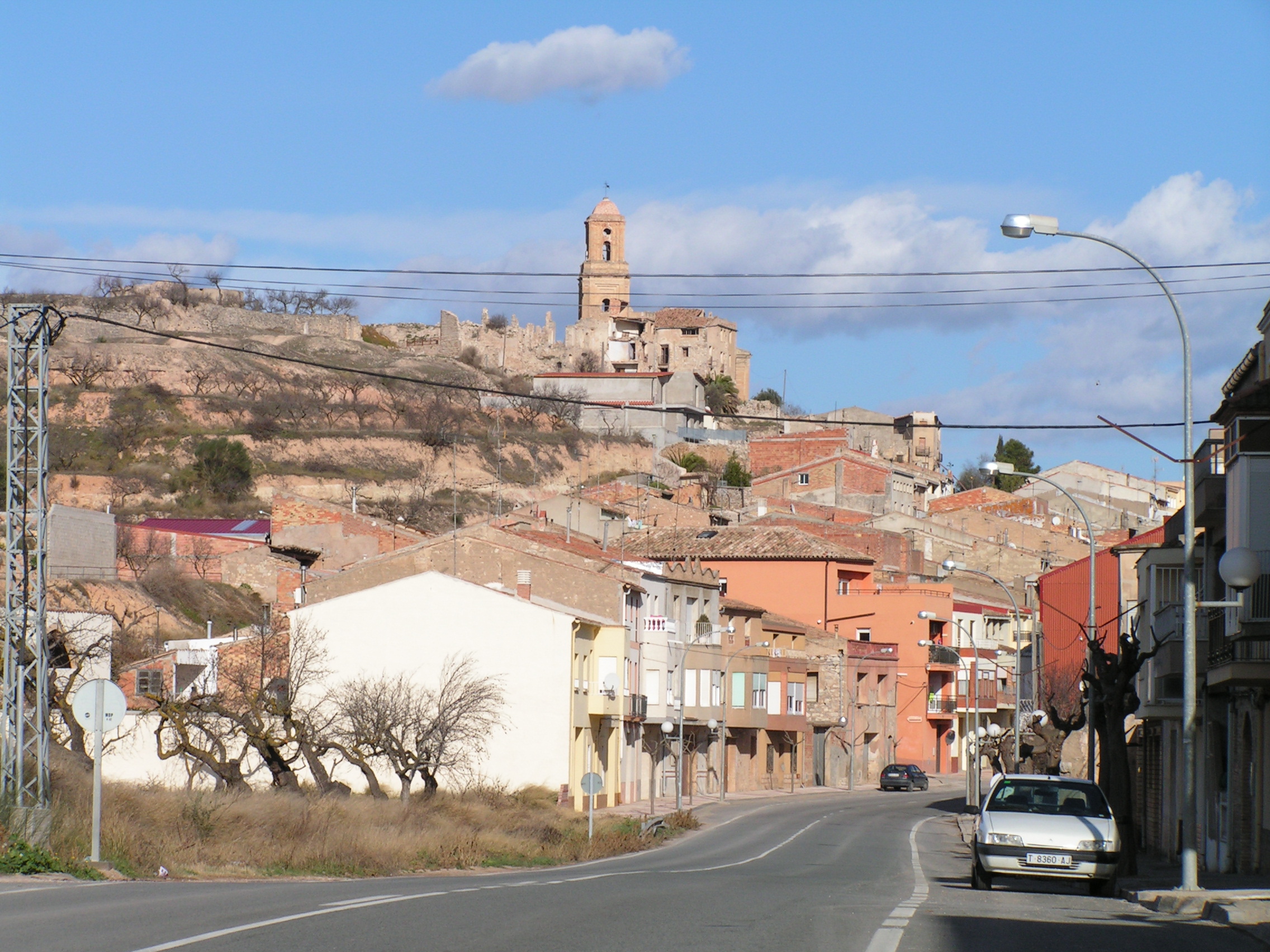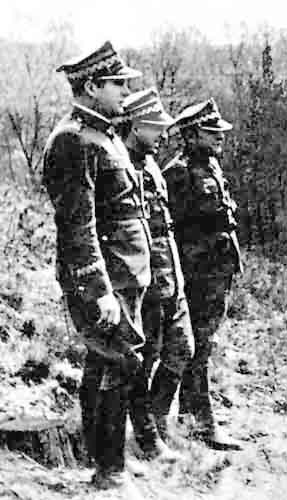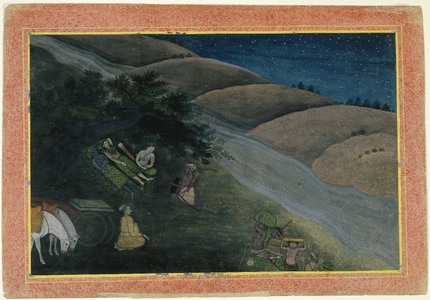|
Pedro Mateo Merino
Pedro Mateo Merino (1912–2000) was a Spanish Republican Army colonel in the Spanish Civil War. He fought at the Battle of the Ebro where as a Militia Major he led the 35th Division, replacing General Karol Świerczewski (General Walter).Carlos Engel, ''Historia de las Brigadas Mixtas del E. P. de la República'', 1999, p. 301 He later spent time in exile in the USSR The Soviet Union,. officially the Union of Soviet Socialist Republics. (USSR),. was a transcontinental country that spanned much of Eurasia from 1922 to 1991. A flagship communist state, it was nominally a federal union of fifteen nationa ..., Czechoslovakia and Cuba. References 1912 births 2000 deaths Spanish soldiers Spanish military personnel of the Spanish Civil War (Republican faction) Exiles of the Spanish Civil War in Cuba Exiles of the Spanish Civil War in the Soviet Union Soviet military personnel of World War II {{Spain-stub ... [...More Info...] [...Related Items...] OR: [Wikipedia] [Google] [Baidu] |
Spanish Republican Army
The Spanish Republican Army ( es, Ejército de la República Española) was the main branch of the Armed Forces of the Second Spanish Republic between 1931 and 1939. It became known as People's Army of the Republic (''Ejército Popular de la República'') after it was reorganized, following the disbandment of the voluntary militias that were formed in July 1936 at the beginning of the Spanish Civil War. History The Spanish Republican Army went through two clear phases during its existence: * The pre-Civil War phase, before the coup of July 1936 that would fracture the Spanish military institution *The Civil War reorganization of the forces that remained loyal to the established republican government. Background Following the loss of Spain's last colonies, Cuba and Philippines, in 1898, the country's armed forces grew disgruntled and the public's view toward them worsened. Military leaders resented the attitude of the Spanish politicians and the public opinion who unjustly bl ... [...More Info...] [...Related Items...] OR: [Wikipedia] [Google] [Baidu] |
Spanish Civil War
The Spanish Civil War ( es, Guerra Civil Española)) or The Revolution ( es, La Revolución, link=no) among Nationalists, the Fourth Carlist War ( es, Cuarta Guerra Carlista, link=no) among Carlists, and The Rebellion ( es, La Rebelión, link=no) or The Uprising ( es, La Sublevación, link=no) among Republicans. was a civil war in Spain fought from 1936 to 1939 between the Republicans and the Nationalists. Republicans were loyal to the left-leaning Popular Front government of the Second Spanish Republic, and consisted of various socialist, communist, separatist, anarchist, and republican parties, some of which had opposed the government in the pre-war period. The opposing Nationalists were an alliance of Falangists, monarchists, conservatives, and traditionalists led by a military junta among whom General Francisco Franco quickly achieved a preponderant role. Due to the international political climate at the time, the war had many facets and was variously viewed as cla ... [...More Info...] [...Related Items...] OR: [Wikipedia] [Google] [Baidu] |
Battle Of The Ebro
The Battle of the Ebro ( es, Batalla del Ebro, ca, Batalla de l'Ebre) was the longest and largest battle of the Spanish Civil War and the greatest, in terms of manpower, logistics and material ever fought on Spanish soil. It took place between July and November 1938, with fighting mainly concentrated in two areas on the lower course of the Ebro River, the Terra Alta comarca of Catalonia, and the Auts area close to Fayón ''(Faió)'' in the lower Matarranya, Eastern Lower Aragon. These sparsely populated areas saw the largest array of armies in the war. The battle was disastrous for the Second Spanish Republic, with tens of thousands left dead or wounded and little effect on the advance of the Nationalists. Background By 1938, the Second Spanish Republic was in dire straits. The Republican Northern zone had fallen, and in the winter of 1937/38 the Republican Popular Army had spent its forces in the Battle of Teruel, a series of bloody combats in subzero temperatures aroun ... [...More Info...] [...Related Items...] OR: [Wikipedia] [Google] [Baidu] |
35th Division (Spain)
The 35th Division ( es, 35.ª División) was a division of the Spanish Republican Army in the Spanish Civil War. This unit was established in March 1937 in order to gather certain scattered units of the International Brigades under one command, therefore it was also known as the 35th International Division (''35.ª División Internacional''). It took part in some of the major battles of the conflict such as Brunete, Teruel and the Battle of the Ebro persistently being afflicted by numerous casualties, especially in the latter. History The 35th Division was established on 23 March 1937 with the XII and XIV International Brigades and the 69th Mixed Brigade, becoming part of the 5th Army Corps. The command of the division was entrusted to Karol Świerczewski, also known as "General Walter" and the Chief of Staff was Lt. Colonel Ludwig Renn, a renowned German Communist. It took part in the Segovia Offensive towards the end of May together with the 34th Division led by Jos ... [...More Info...] [...Related Items...] OR: [Wikipedia] [Google] [Baidu] |
Karol Świerczewski
Karol Wacław Świerczewski (; callsign ''Walter''; 10 February 1897 – 28 March 1947) was a Polish and Soviet Red Army general and statesman. He was a Bolshevik Party member during the Russian Civil War and a Soviet officer in the wars fought abroad by the Soviet Union including the one against Polish as well as Ukrainian Republics and in Republican Spain. In 1939 he participated in the Soviet invasion of Poland again. At the end of World War II in Europe he was installed as one of leaders of the Soviet-sponsored Polish Provisional Government of National Unity. Soon later, Świerczewski died in a country-road ambush shot by the militants from OUN-UPA. He was an icon of communist propaganda for the following several decades. Life Born in Warsaw in Congress Poland, Karol Świerczewski grew up in a poor working-class family and began working at age 12 in a local Warsaw factory. During the First World War, at the age of 18 he was evacuated in 1915 to Moscow by the Russian Imperi ... [...More Info...] [...Related Items...] OR: [Wikipedia] [Google] [Baidu] |
USSR
The Soviet Union,. officially the Union of Soviet Socialist Republics. (USSR),. was a transcontinental country that spanned much of Eurasia from 1922 to 1991. A flagship communist state, it was nominally a federal union of fifteen national republics; in practice, both its government and its economy were highly centralized until its final years. It was a one-party state governed by the Communist Party of the Soviet Union, with the city of Moscow serving as its capital as well as that of its largest and most populous republic: the Russian SFSR. Other major cities included Leningrad (Russian SFSR), Kiev ( Ukrainian SSR), Minsk ( Byelorussian SSR), Tashkent (Uzbek SSR), Alma-Ata (Kazakh SSR), and Novosibirsk (Russian SFSR). It was the largest country in the world, covering over and spanning eleven time zones. The country's roots lay in the October Revolution of 1917, when the Bolsheviks, under the leadership of Vladimir Lenin, overthrew the Russian Provisional Gove ... [...More Info...] [...Related Items...] OR: [Wikipedia] [Google] [Baidu] |
1912 Births
Year 191 ( CXCI) was a common year starting on Friday (link will display the full calendar) of the Julian calendar. At the time, it was known as the Year of the Consulship of Apronianus and Bradua (or, less frequently, year 944 ''Ab urbe condita''). The denomination 191 for this year has been used since the early medieval period, when the Anno Domini calendar era became the prevalent method in Europe for naming years. Events By place Parthia * King Vologases IV of Parthia dies after a 44-year reign, and is succeeded by his son Vologases V. China * A coalition of Chinese warlords from the east of Hangu Pass launches a punitive campaign against the warlord Dong Zhuo, who seized control of the central government in 189, and held the figurehead Emperor Xian hostage. After suffering some defeats against the coalition forces, Dong Zhuo forcefully relocates the imperial capital from Luoyang to Chang'an. Before leaving, Dong Zhuo orders his troops to loot the tombs of the H ... [...More Info...] [...Related Items...] OR: [Wikipedia] [Google] [Baidu] |
Spanish Soldiers
Spanish might refer to: * Items from or related to Spain: **Spaniards are a nation and ethnic group indigenous to Spain **Spanish language, spoken in Spain and many Latin American countries **Spanish cuisine Other places * Spanish, Ontario, Canada * Spanish River (other), the name of several rivers * Spanish Town, Jamaica Other uses * John J. Spanish (1922–2019), American politician * "Spanish" (song), a single by Craig David, 2003 See also * * * Español (other) * Spain (other) * España (other) * Espanola (other) * Hispania, the Roman and Greek name for the Iberian Peninsula * Hispanic, the people, nations, and cultures that have a historical link to Spain * Hispanic (other) * Hispanism * Spain (other) * National and regional identity in Spain * Culture of Spain * Spanish Fort (other) Spanish Fort or Old Spanish Fort may refer to: United States * Spanish Fort, Alabama, a city * Spanish Fort (Color ... [...More Info...] [...Related Items...] OR: [Wikipedia] [Google] [Baidu] |
Spanish Military Personnel Of The Spanish Civil War (Republican Faction)
Spanish might refer to: * Items from or related to Spain: **Spaniards are a nation and ethnic group indigenous to Spain **Spanish language, spoken in Spain and many Latin American countries **Spanish cuisine Other places * Spanish, Ontario, Canada * Spanish River (other), the name of several rivers * Spanish Town, Jamaica Other uses * John J. Spanish (1922–2019), American politician * "Spanish" (song), a single by Craig David, 2003 See also * * * Español (other) * Spain (other) * España (other) * Espanola (other) * Hispania, the Roman and Greek name for the Iberian Peninsula * Hispanic, the people, nations, and cultures that have a historical link to Spain * Hispanic (other) * Hispanism * Spain (other) * National and regional identity in Spain * Culture of Spain * Spanish Fort (other) Spanish Fort or Old Spanish Fort may refer to: United States * Spanish Fort, Alabama, a city * Spanish Fort (Colorad ... [...More Info...] [...Related Items...] OR: [Wikipedia] [Google] [Baidu] |
Exiles Of The Spanish Civil War In Cuba
Exile is primarily penal expulsion from one's native country, and secondarily expatriation or prolonged absence from one's homeland under either the compulsion of circumstance or the rigors of some high purpose. Usually persons and peoples suffer exile, but sometimes social entities like institutions (e.g. the papacy or a government) are forced from their homeland. In Roman law, ''exsilium'' denoted both voluntary exile and banishment as a capital punishment alternative to death. Deportation was forced exile, and entailed the lifelong loss of citizenship and property. Relegation was a milder form of deportation, which preserved the subject's citizenship and property. The term diaspora describes group exile, both voluntary and forced. " Government in exile" describes a government of a country that has relocated and argues its legitimacy from outside that country. Voluntary exile is often depicted as a form of protest by the person who claims it, to avoid persecution and p ... [...More Info...] [...Related Items...] OR: [Wikipedia] [Google] [Baidu] |
Exiles Of The Spanish Civil War In The Soviet Union
Exile is primarily penal expulsion from one's native country, and secondarily expatriation or prolonged absence from one's homeland under either the compulsion of circumstance or the rigors of some high purpose. Usually persons and peoples suffer exile, but sometimes social entities like institutions (e.g. the papacy or a government) are forced from their homeland. In Roman law, ''exsilium'' denoted both voluntary exile and banishment as a capital punishment alternative to death. Deportation was forced exile, and entailed the lifelong loss of citizenship and property. Relegation was a milder form of deportation, which preserved the subject's citizenship and property. The term diaspora describes group exile, both voluntary and forced. "Government in exile" describes a government of a country that has relocated and argues its legitimacy from outside that country. Voluntary exile is often depicted as a form of protest by the person who claims it, to avoid persecution and prosecut ... [...More Info...] [...Related Items...] OR: [Wikipedia] [Google] [Baidu] |




